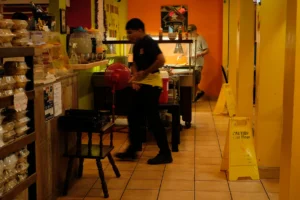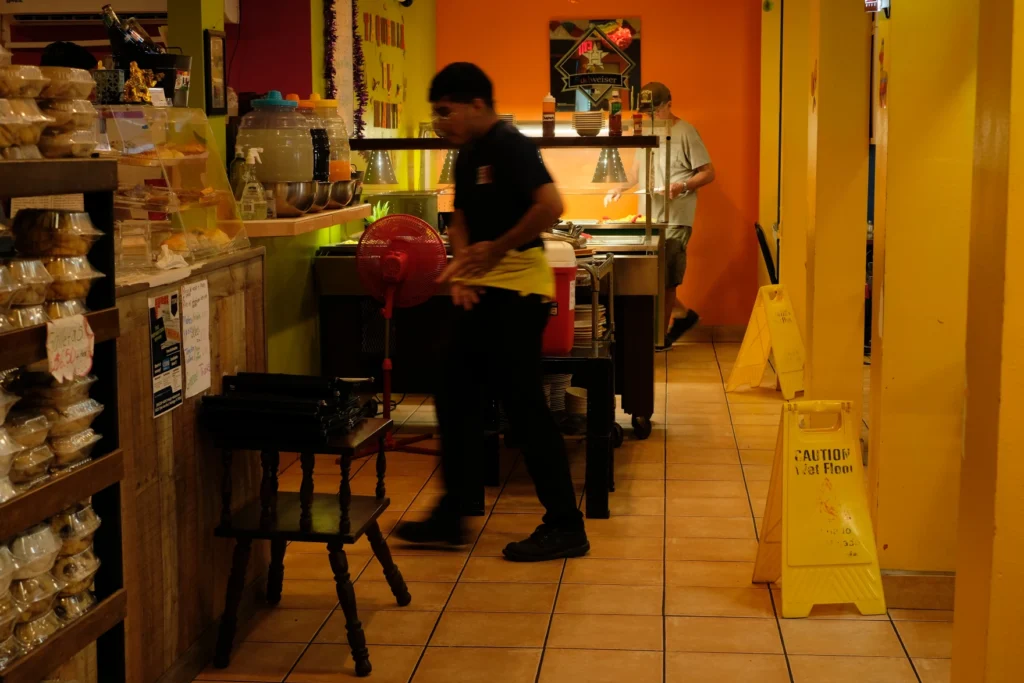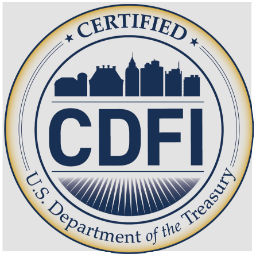
Texas Public Radio, Border and Immigration
Colonias, some of the lowest-income communities in the nation, abound in the Rio Grande Valley. Residents often have to drive long distances for groceries and basic services.
But over time, colonia residents have overcome inaccessibility by starting businesses themselves. Residents say these small economies bolster their entire communities.
Bent Tree is a growing colonia that started in 2007 as a single row of houses. It’s on the rural side of the expressway, where the only chain stores are Dollar General, which have only recently appeared. But in the colonia, business is booming.
The colonia’s single entrance is flanked by a small row of cars for sale and a home that offers car washes and welding services. Nearby, vendors set up tents and sell a variety of food. On the weekends, they gather in front of the colonia, similar to a flea market.
“We have dinner, food, lunch. On the weekends there’s menudo, barbacoa, menudo, tamales, pozole. … There’s a little bit of everything,” Bent Tree resident and community organizer Orelia Iracheta said in Spanish.
Iracheta founded the Bent Tree Sales and Services Facebook page in 2015, and it now has more than 13,000 members. She said it began as a way to unify residents to advocate for streetlights in the colonia, but it quickly evolved.
“What started as a necessity to pass on information from an organization lent itself to many other situations … illnesses, needs, employment, offering services,” Maria Cordero, one of the page’s moderators, explained in Spanish. “That’s why the page has so many people now.”
The page is now a major hub for sales and information about commercial activity in the colonia. Cordero added that the page encourages people to start their own businesses.
“For example, there are people that began selling tamales Veracruzanos from the beginning, and other people — who also have a talent for cooking — see that and think, ‘well, that lady sells tamales, maybe I can sell sandwichon,’ ” she said.
Iracheta and Cordero also explained that Bent Tree inspired other colonias, like El Ranchito near San Benito, to establish their own Facebook pages. Iracheta added that people from other colonias, like Cameron Park in Brownsville, regularly come to Bent Tree to sell their goods. They’ve even seen vendors all the way from Houston and Matamoros on the page.
“And that’s what sellers always say: ‘there’s space for everyone on the page,’ ” Cordero said.
She explained that another major business — raffles — dominates the local market. In these raffles, people chip in small amounts of money for a chance to win something. The Facebook page’s moderators randomly select a winner.
“That within itself is a business. It’s its own microbusiness,” she said.
Cordero said they’re popular because they allow the seller to profit while individual bidders pay very little. Smaller colonias, such as nearby La Paloma, depend on Bent Tree to conduct their raffles.
“Neighbors [in Bent Tree] let them borrow their houses to conduct their raffles here because people here support each other,” Iracheta said.


Gaige Davila/TPR, Street sign at the entrance of colonia Bent Tree.
Like colonias of the past and present, Bent Tree is composed of mostly low-income Mexican-American families of varying documentation status. Border Patrol agents are always present in and around the neighborhood, and that weighs on many of its undocumented residents.
But, Cordero said, the community works hard to keep it a safe space, even online. Documented residents protect those who aren’t. Cordero, Iracheta and the other page administrators screen people who want to join or sell on the page.
“We have a lot of fear because there are a lot of vulnerable people in the colonia,” Cordero said. “That’s why we try to be cautious in every respect.”
Iracheta said anyone in the colonia, regardless of their documentation status, can thrive if they want to. She’s noticed Mexican residents are especially driven.
“Here, those who want will overcome,” she said. “Over in the projects, there’s lots of people who go looking for help with their rent, their electricity, saying, ‘we’re U.S. citizens, we deserve it.’ But here, Mexican citizens come and say, ‘I need help with rent, will you please buy some popcorn?’ ”
That drive is evident in people like Gabriel Jimenez, a Mexican immigrant with a successful brick-and-mortar business.
The Bent Tree resident opened Taquieria El Mante 12 years ago in a Harlingen mall. He recently opened a second location, in San Benito.
He said Bent Tree residents are loyal customers and employees. Jimenez is also a patron.
“Many neighbors come here to eat … and when we’re there [in Bent Tree], we’ll also buy some elote or some tostaditas,” Jimenez said.
According to LiftFund, which is a small-business lender in the area, it has granted almost 8,000 small-business loans to colonia residents along the Texas border, totaling around $115,000,000.
But Marlene Rodriguez, the organization’s business development officer, said the company faces unique obstacles.
“A lot of the times, [residents] don’t want to share a lot of their information, personal information, or they don’t know whether they’re asking the right question or they’re approaching the right person,” Rodriguez said.
But barriers residents face, including a lack of financial literacy and language skills, make them especially vulnerable to predatory lenders that deal in high-interest loans, enticing applicants with a fast approval process and minimal information requirements.
Rodriguez has seen these types of loans destroy otherwise successful businesses. She said the solution is gaining people’s trust so they’re comfortable sharing information that is necessary to finance their business in a sustainable way.
“It’s all about community engagement through our partners,” she said.
LiftFund relies on nonprofit organizations that work with colonias or community workers to help them engage with small-business owners.
Bent Tree, which started as just Bent Tree Avenue, now has eleven streets lined with homes and home businesses. As the community has grown, so have residents’ needs. Residents like Iracheta have stepped up to the challenge.
She uses the Facebook page to gather donations and has found a way to gather free supplies for those in need. Vendors will ask the page administrators to promote their goods in exchange for items. It’s how Iracheta got free masks for the community during the height of the COVID-19 pandemic. They advertise events, like school-supply drives, on the page, too.
She sees initiatives like these and the page’s commercial achievement as a testament to the community’s unity.
Iracheta has seen Bent Tree residents find success despite poverty and language and documentation barriers. She said these types of stories are a point of pride for her — and they should be for the entire state.
“Why isn’t that what’s focused on instead of people criticizing the bad?” she wondered. “That’s something that in all of Texas we need to change. We’re so good at getting the worst of people but not at recognizing all the good.”



